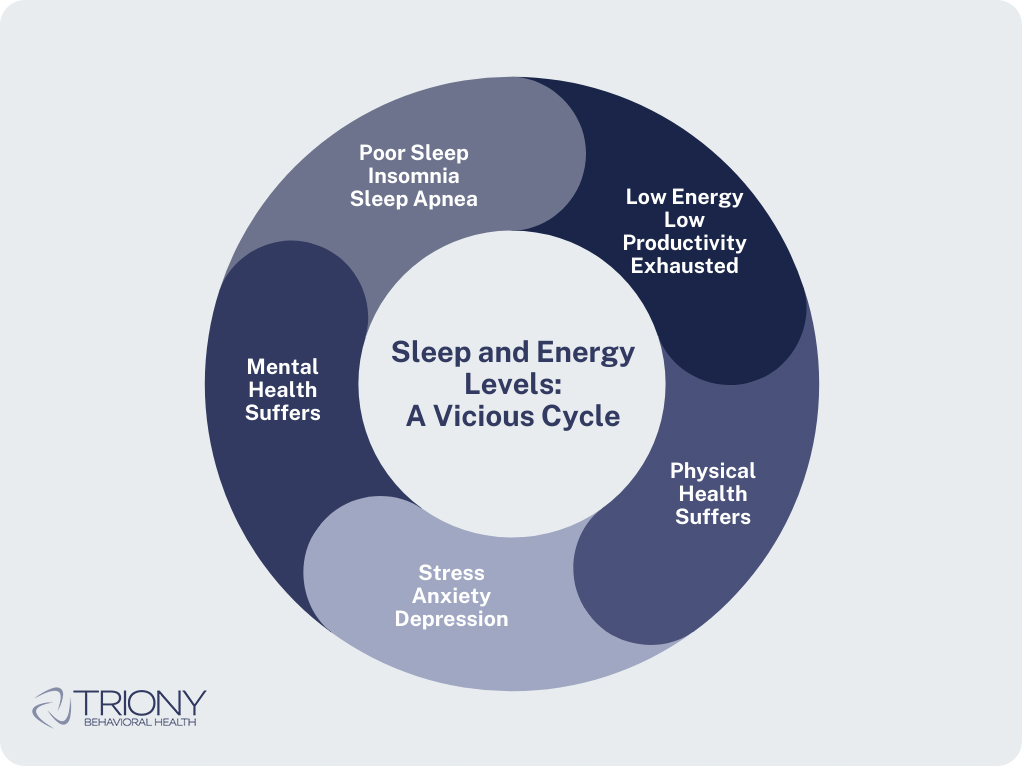How Mental Health Affects Physical Health and Overall Well-Being
We often think of mental and physical health as two separate things, but the truth is, they are deeply connected. When your mind is struggling, it’s not just your mood that suffers—your body feels the impact too. Taking care of your mental health is about more than just feeling good emotionally; it’s about protecting your overall well-being. So, let’s break down how mental health affects physical health and why it’s so important to address both.
How Mental Health Impacts Digestive Health
You’ve probably experienced “butterflies” in your stomach before a big event. That’s a small example of how your mind can affect your gut. But chronic stress, anxiety, or depression can take this much further. Research shows that ongoing mental health issues can actually change how your digestive system works, leading to discomfort, pain, and even digestive disorders.
Stress doesn’t just sit in your head; it travels through your body, affecting the way your stomach and intestines function. If you’re constantly stressed or anxious, it can make things like irritable bowel syndrome (IBS) or other gut issues worse. The mind and gut are in constant communication, and when that balance is off, your digestive health pays the price.
Sleep and Energy Levels: A Vicious Cycle
Another area where mental health and physical health collide is sleep. Struggling with chronic stress, anxiety, or depression can make it hard to get a good night’s rest. Mental health conditions often lead to racing thoughts, insomnia, or waking up throughout the night. Unfortunately, poor sleep can then worsen your mental state, creating a vicious cycle.
When your mind is tired, your body feels it too. A lack of sleep drains your energy, slows down your productivity, and leaves you feeling exhausted throughout the day. Over time, this can even lead to sleep disorders like insomnia or sleep apnea, which further hurt your mental and physical health.

Heart Health and Mental Well-Being
Your heart doesn’t just respond to physical activity—it responds to your emotions too. Chronic stress, anxiety, or depression can increase your risk of developing heart disease. When you’re stressed, your body releases cortisol, the “stress hormone,” which raises your blood pressure and heart rate. This isn’t a big deal in small doses, but when you’re constantly stressed, it can have serious consequences for your heart health.
Over time, chronic mental health issues can lead to conditions like high blood pressure, heart disease, and even heart attacks. So while exercise and a healthy diet are crucial for heart health, managing your mental well-being is just as important.
How Mental Health Affects Daily Life
Mental health plays a major role in how you navigate daily life. When your mental health is compromised, it affects your emotional regulation, decision-making, and ability to focus. Stress, anxiety, or depression can make it difficult to stay on top of work, manage relationships, and even enjoy activities you once loved.
Imagine trying to focus on an important task while feeling overwhelmed with anxiety or too depressed to care. These feelings can disrupt your day-to-day functioning, leaving you less productive and more prone to burnout. It’s a reminder that mental health doesn’t just live in your mind—it affects every aspect of your life.
Why Mental Health is Important
Your mental health is the foundation of your overall well-being. When it’s in a good place, you’re better equipped to handle life’s challenges, make sound decisions, and build strong relationships. Good mental health also supports healthy coping mechanisms, allowing you to bounce back from stress more effectively.
Neglecting mental health can lead to poor decision-making, trouble managing emotions, and an inability to handle stress—all of which take a toll on your physical body. The bottom line is that a healthy mind supports a healthy body, and when one is out of balance, the other often follows.
Mental Health’s Impact on Longevity
The mind-body connection is so strong that your mental health can actually impact how long you live. Studies show that people with severe and chronic mental health conditions tend to have shorter lifespans. Conditions like depression, anxiety, and PTSD increase the risk of heart disease, weaken the immune system, and make chronic health problems harder to manage.
Mental health issues make it more difficult to maintain resilience in the face of chronic illness, and they affect everything from your ability to fight off infections to how you manage long-term diseases like diabetes or heart conditions. In short, taking care of your mental health could help you live longer and feel better as you age.
Prioritizing Mental Health for Physical Well-Being
The message is clear: mental health affects physical health in more ways than we might think. From digestive issues and sleep problems to heart disease and even life expectancy, the connection between your mind and body is undeniable.
Don’t wait for a crisis to start taking care of your mental health. By making it a priority, you’re also giving your body the support it needs to thrive. At Triony Behavioral Health, we make this a priority by offering holistic care that treats both the mind and body. Our clients have the opportunity to visit the YMCA multiple times a week, where they can access gym equipment, basketball courts, swimming pools, and more. This integration of physical activity into our care model is designed to support lasting mental well-being and physical health.
If you or someone you know is struggling, help is available. Contact Triony Behavioral Health today at 1-888-689-1432 to take the first step toward a healthier, more fulfilling life.
Schedule consultation
Building a Foundation of Trust and Support
"In the midst of chaos, there is also opportunity." At the core of our services lies a deep commitment to creating a safe, supportive environment. We believe that a strong support system is crucial for healing and growth. Our team of compassionate professionals is dedicated to walking alongside you, offering guidance and understanding at every step of your journey.





